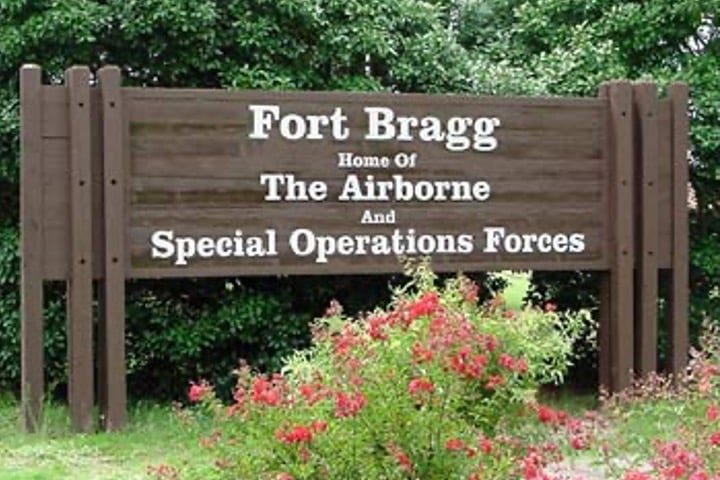
It isn’t bad enough that the Biden administration has overseen the revolting renaming of several U.S. military installations, but now the published explanations for the changes are teaching false history.
Fort Bragg, rebranded Fort Liberty, is one example of this egregious attempt to rewrite American history — particularly that of the Founding Fathers and the U.S. Constitution — into a narrative more conforming to the regime’s policies and principles than to the facts of the founding of the United States.
The following text is taken from the Frequently Asked Questions (FAQ) page of the U.S. Army’s website. This particular question was “Why Liberty?”:
From the Naming Commission’s report:
Perhaps no value has proved more essential to the United States of America and the history of its military than Liberty. Our Army was founded to achieve the ideal of liberty. In the American Revolution, patriots fought for the liberty to direct their lives, pursue their happiness, and determine their futures through representative democracy. When they created a standing military to provide for the common defense, they did so in order to secure the blessings of liberty. Encompassing more than simple freedom of action, movement, or commerce, our founders conceived of liberty as a force central to realizing full human promise.
I’ve met many readers of The New American over the years, and I know many of you will instantly catch some of the major mistakes in this paragraph published, remember, by the U.S. Army on its official website.
First, the United States are, not is. The Founding Fathers vehemently rejected the consolidation of the 13 republics into one nation. I’ve written about this before, but for those wishing to turn to the Founding Fathers, I’d suggest The Federalist Nos. 39, 45, and 46, written by James Madison.
Next, patriots fought to “determine their futures through representative democracy?” No, they didn’t. If you would have suggested to the men fighting to secure freedom from British tyranny that they were fighting for democracy, they would have lain down their weapons and returned to their farms. Again, democracy is anathema to the American system of government. Period. For those wishing to read more on this subject, please reference Article IV, Section 4 of the U.S. Constitution, which guarantees to each state joining the union a “republican form of government,” and The Federalist No. 10, wherein James Madison expressly contrasts the governments of the states and their union with democracies, which he describes as “in general [being] as short in their lives as they have been violent in their deaths.”
Bottom line: Neither the states nor their union have ever had a democratic form of government — in fact, that would be a direct violation of Article IV of the Constitution — despite the Pentagon and Biden administration’s attempts to revise our history.
Lastly, the idea that the Founding Fathers “created a standing military … as a force central to realizing full human promise.” OK. I mean, a simple Google search “standing army founding fathers” could have corrected the copywriters here. Of course, that could be said about every one of these “mistakes” (I put mistakes in quotation marks because I think they are purposeful in their incorrect portrayal of U.S. and constitutional history).
During the Virginia ratifying convention, James Madison described a standing army as
the greatest mischief that can happen.
His colleague and fellow delegate to the Constitutional Convention of 1787, George Mason, put a finer point on it:
No man has a greater regard for the military gentlemen than I have. I admire their intrepidity, perseverance, and valor. But when once a standing army is established in any country, the people lose their liberty. When, against a regular and disciplined army, yeomanry are the only defence, — yeomanry, unskilful and unarmed, — what chance is there for preserving freedom? Give me leave to recur to the page of history, to warn you of your present danger. Recollect the history of most nations of the world. What havoc, desolation, and destruction, have been perpetrated by standing armies!
In The Federalist No. 29, Alexander Hamilton not only echoes Mason’s warning against a standing army, but offers his solution to the threat, as well:
If circumstances should at any time oblige the government to form an army of any magnitude, that army can never be formidable to the liberties of the people while there is a large body of citizens, little, if at all, inferior to them in discipline and the use of arms, who stand ready to defend their own rights and those of their fellow-citizens. This appears to me the only substitute that can be devised for a standing army, and the best possible security against it, if it should exist.
In commenting on Blackstone’s Commentaries, founding era jurist St. George Tucker spoke as if he foresaw our day and the fatal combination of an increasingly militarized police force and the disarmament of civilians:
Wherever standing armies are kept up, and the right of the people to keep and bear arms is, under any colour or pretext whatsoever, prohibited, liberty, if not already annihilated, is on the brink of destruction.
Does that suffice to convince you that the Founding Fathers most inarguably did not create a standing army, nor a standing army with force enough to help Americans realize their “full human promise?” If not, I could write several thousand words on this subject alone.
In closing, let me say this about the decision to strip General Braxton Bragg’s name off a fort in his native state. General Braxton Bragg attended West Point, the United States Military Academy, where, in 1837, he graduated fifth out of his class of 50. Bragg fought as an officer of the United States Army in the Second Seminole War and in the Mexican-American War. Bragg served the United States faithfully, and he served his adopted home state of Louisiana (he began farming there after retiring from the Army). It should be looked upon as something of the mark of a hero to choose his home government over one he considered to have violated the Constitution and to have usurped authority not granted to it in that document. There is a lesson in that for all of us.
Finally, on December 25, 1868, President Andrew Johnson granted to General Braxton Bragg and his fellow Confederate soldiers a “full pardon and amnesty” for all crimes of which they were (falsely) accused. Full pardon and amnesty. With his name stripped from Fort Bragg, it seems the pardon and amnesty weren’t quite full after all.



